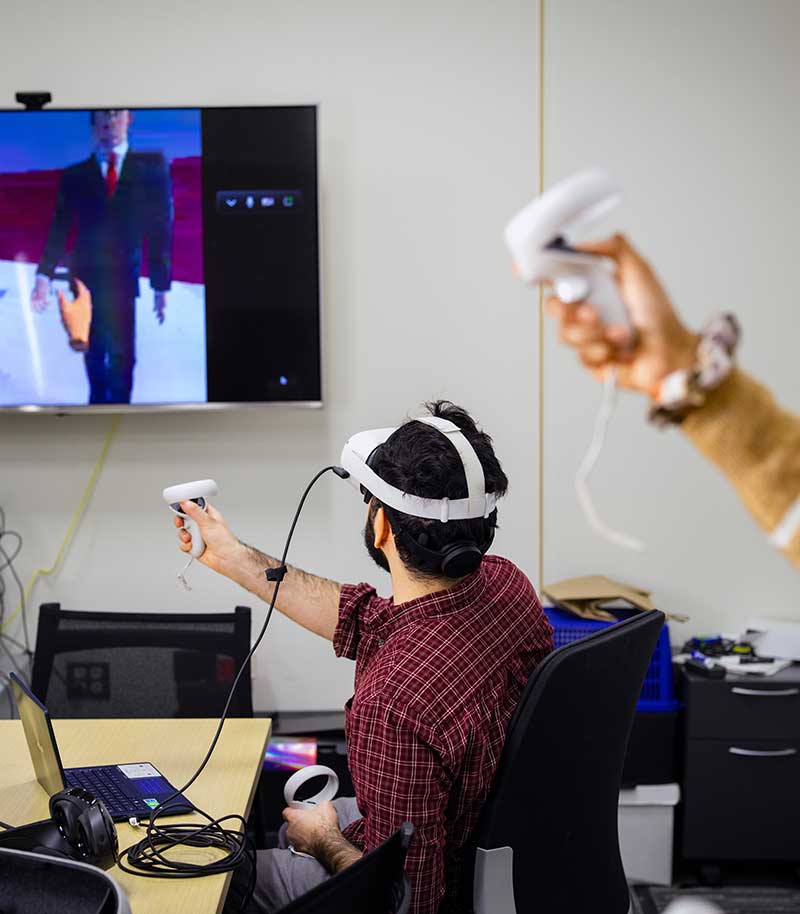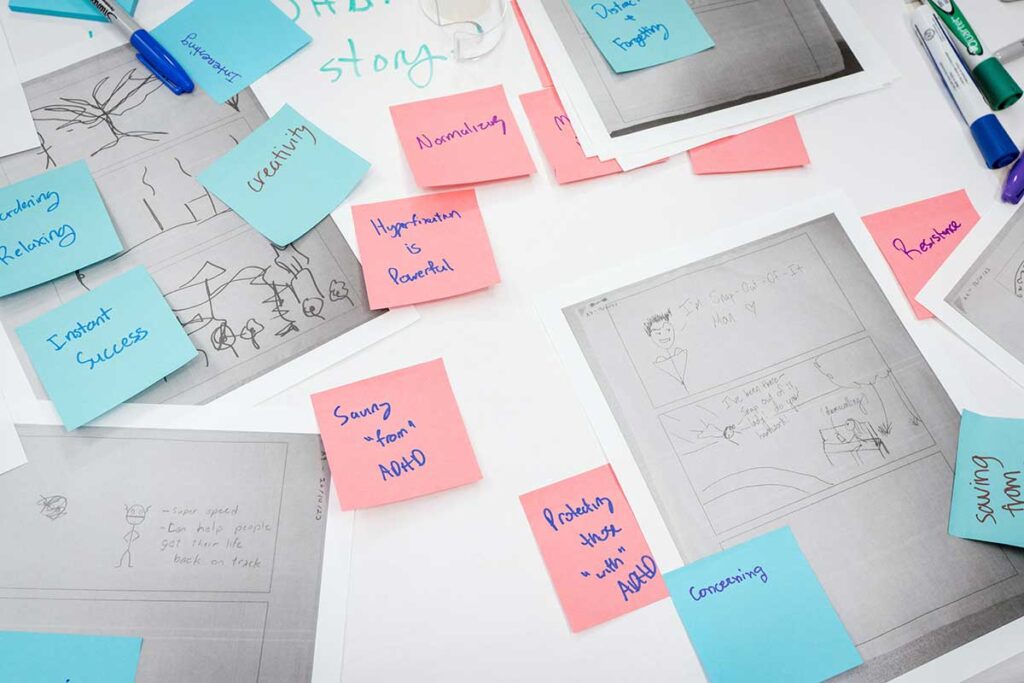
Games at Khoury College of Computer Sciences
Pushing the boundaries of games from how they’re designed and developed to how they aid learning, scientific discovery, and health
A highly collaborative and interdisciplinary research area, study of computer games at Khoury College taps theoretical computer science, design and usability, the social contexts of games, and the role of AI in game development. Using
state-of-the-art facilities, students can explore the cutting edge of extended reality (ER) games (incorporating augmented and virtual reality approaches), as well as the growing role game elements play in the digital devices we use every day.


Games: Not just for play
Research at Khoury College is helping develop serious games on a range of topics, improving communication between health providers and patients, games to help older populations maintain cognitive acuity, and games that create crowdsourcing opportunities (and fun game play, too) to accelerate scientific discovery.
Sample research areas
- Human factors
- Game evaluation
- Gameplay analytics and visualization
- New gaming interface design
- Player experience and modeling
- Computational algorithms for interactive narrative and building 3D characters
- Development of new methods to understand human behaviors
- Games for crowdsourcing
- Human computation games
- Citizen science
Domains of interest
- Extended reality research (encompassing augmented and virtual reality)
- Human factors in computing systems
- Scientific discovery games
- Serious games
- Citizen science
- Novel interfaces for problem-solving
- Automated and AI tools for assisting game design and development
- Computational structural biochemistry

Meet researcher Alexandra To
Alexandra To discusses game design that encourages everyone to flourish: “What does it look like to make a game more inclusive from the start?”

Current project highlights
Khoury researchers are synthesizing research on how games could encourage reflection and potentially aid in personal growth. They’re developing a design framework for “reflective play” and implications for those game developers aiming to build better tools to improve well-being.
Working closely with colleagues at Northeastern’s College of Arts, Media and Design (CAMD), researchers are working on XR technologies to accelerate workforce training in advanced manufacturing and robotics. Instead of live training on the equipment, something both costly and potentially dangerous, workers can develop the skills they need via XR games which have the benefit of advanced learning design and feedback.
Recent research publications
A Design Framework for Reflective Play
Authors: Josh Aaron Miller, Matthew Alexander Whitby, Seth Cooper, Ioanna Iacovides, Kutub Gandhi, Mehmet Kosa, Elisa D. Mekler
How could games be better designed and programmed so as to support reflection and growth? Recent research has begun exploring games as a medium for reflection due to their affordances as interactive systems of challenge. However, little effort has been put into synthesizing insights across studies and disciplines and translating the academic work on reflective play into practical takeaways for game developers.
Designing Video Games to Crowdsource Accelerometer Data Annotation for Activity Recognition Research
Authors: Aditya Ponnada, Seth Cooper, Binod Thapa-Chhetry, Josh Aaron Miller, Dinesh John, Stephen Intille
Although digital accelerometers that track human physical activity are widely available, working with the output from these trackers to build better programs is cumbersome, generally requiring manual annotation for when an activity began or ended. What if this annotation could be a by-product of game playing? Khoury researchers are exploring ways of using gamers to do data annotation, with the potential for better programs and more useful interfaces.
Related labs and groups
Faculty members
-

Seth Cooper
Seth Cooper is an associate professor at Khoury College. By combining game design with crowdsourcing and automated tools, he has become a pioneer of scientific discovery games.
-

Bob De Schutter
Bob De Schutter is an associate professor at Khoury College, jointly appointed with the College of Arts, Media and Design. His game design work emphasizes the importance of older gamers and lifelong play, a mission reflected in his ownership of award-winning game company Lifelong Games LLC.
-

Brianna Dym
Brianna Dym is an assistant teaching professor at Khoury College, where she teaches human–computer interaction and programming design. She is driven to broaden participation in computing and ensure that everyone benefits from technology; to achieve this, she has reimagined curricula and fostered community among LGBTQ students.
-

Wallace Lages
Wallace Lages is an assistant professor at Khoury College, jointly appointed with the College of Arts, Media and Design. He blends his multidisciplinary research into augmented and virtual reality with his artistic practice, which has been featured on four continents.
-

Chris Martens
Chris Martens is an associate professor at Khoury College, jointly appointed with the College of Arts, Media and Design. A recipient of the NSF Career Award in 2019, they research the design of elegant computational abstractions for interactive and generative software, especially creative applications such as generative art and games.
-

Rush Sanghrajka
Rush Sanghrajka is an assistant teaching professor at Khoury College. His dual passions are computer intelligence as a storytelling medium, and computer science pedagogy.
-

Alexandra To
Alexandra To is an assistant professor at Khoury College, jointly appointed with the College of Arts, Media and Design. Her human–computer interaction research aims to uplift marginalized people, allowing them to access joy, play, and justice through tech.
-

Dakuo Wang
Dakuo Wang is an associate professor at Khoury College. He is also an ACM Distinguished Speaker and gives talks around the world on his research into human-centered AI (HCAI) systems.